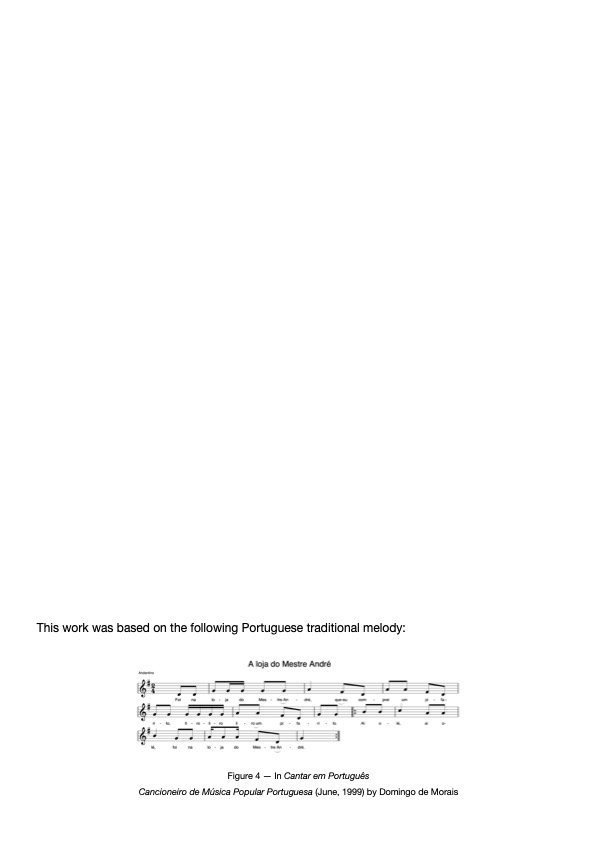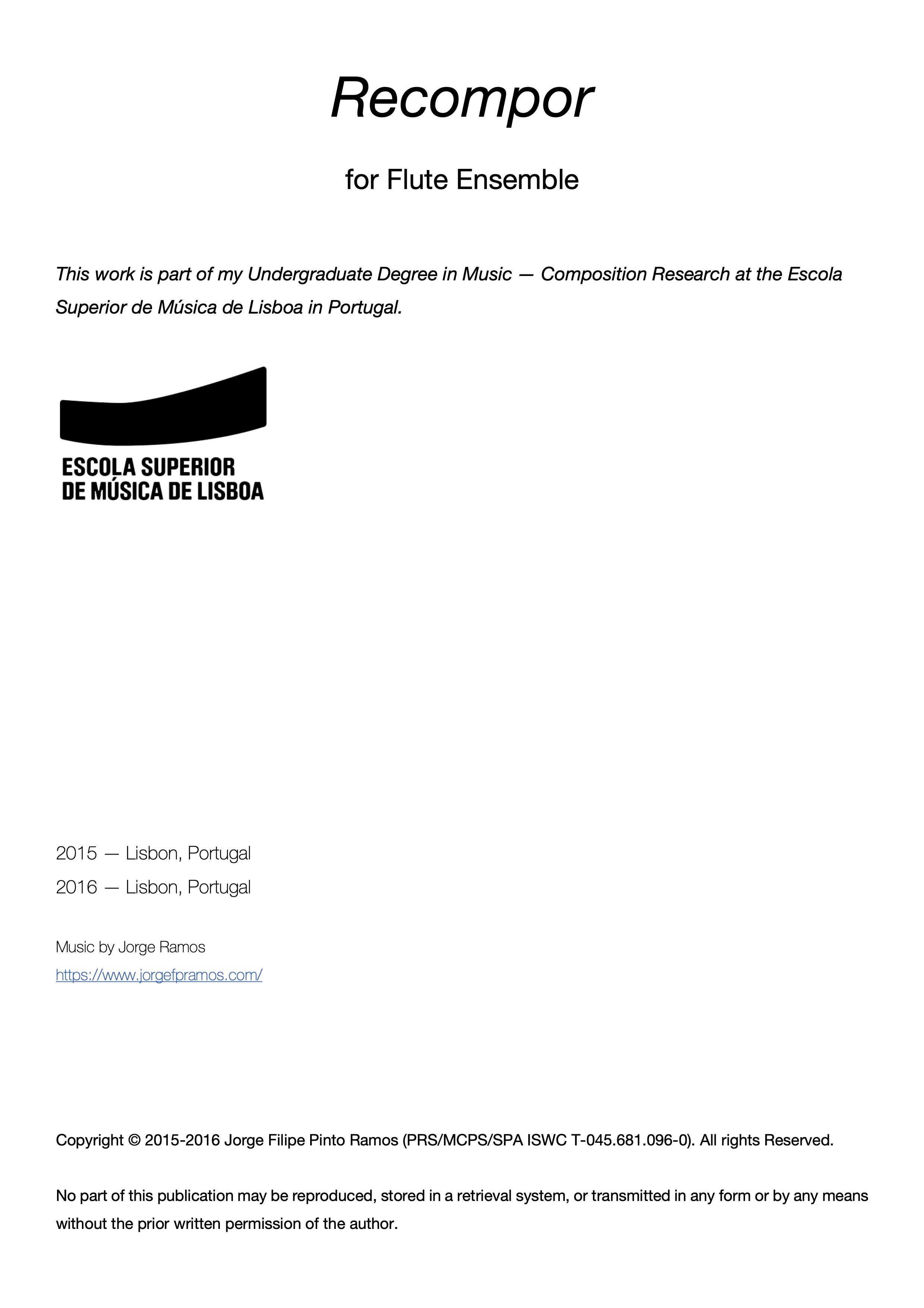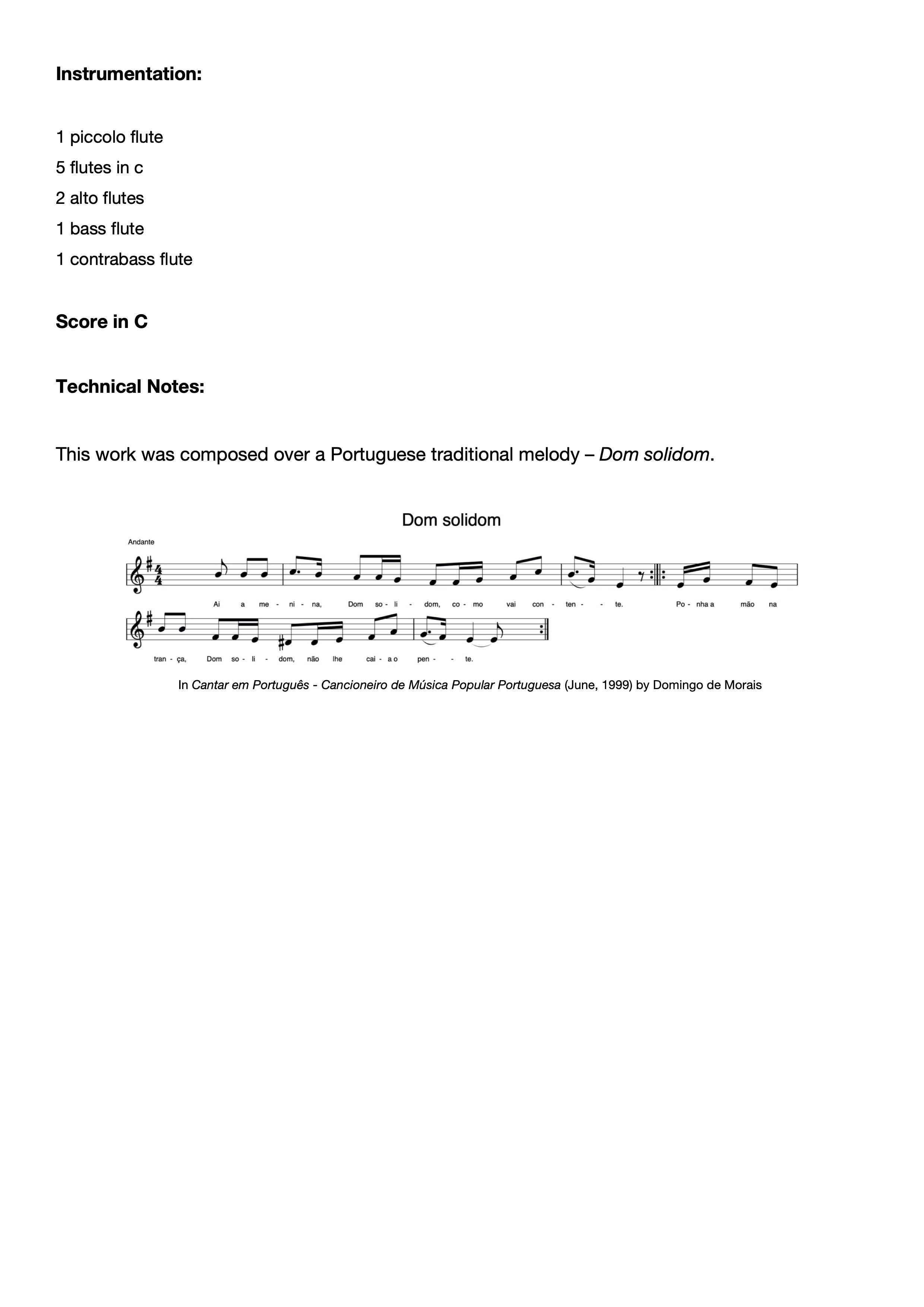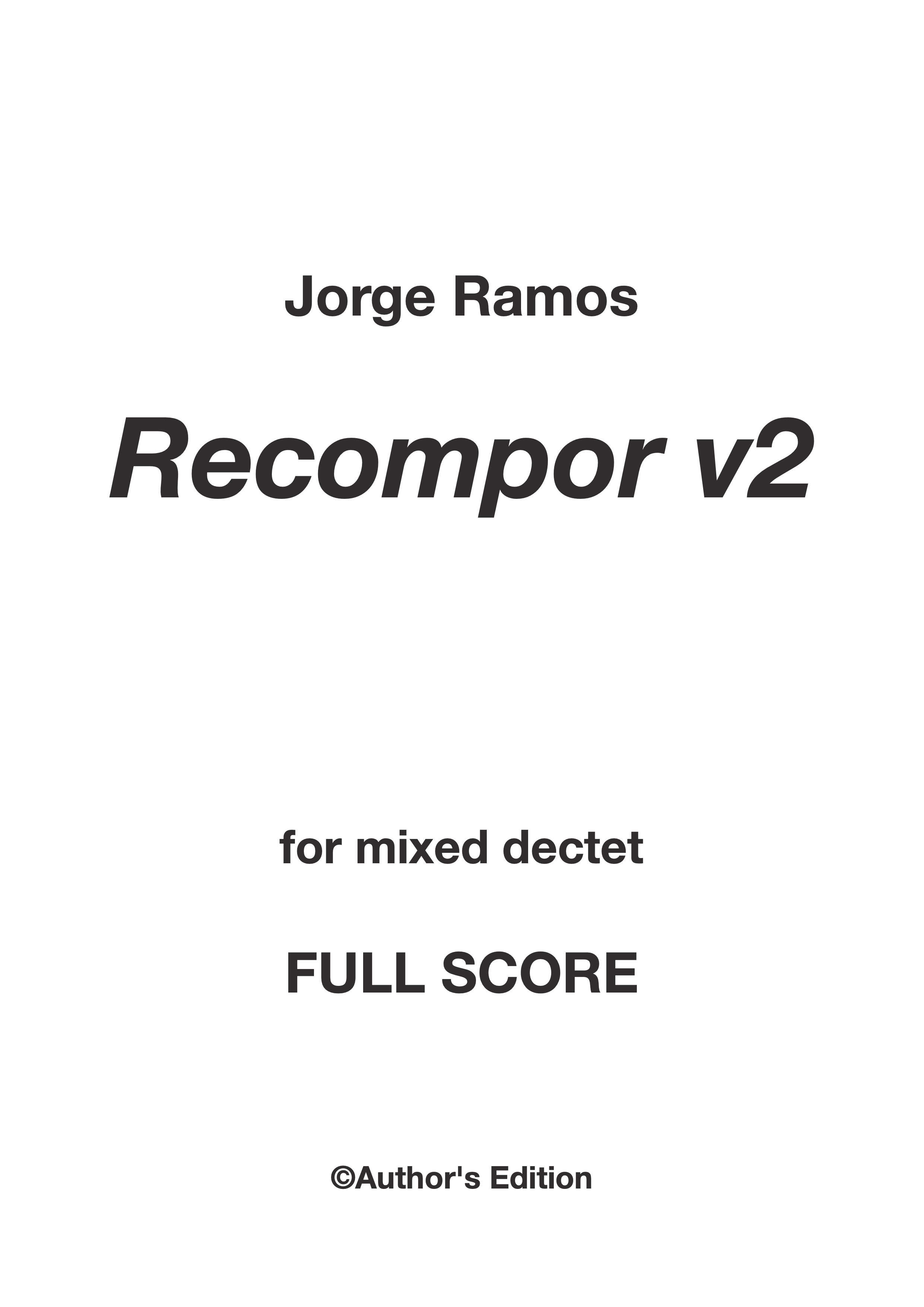 Image 1 of 5
Image 1 of 5

 Image 2 of 5
Image 2 of 5

 Image 3 of 5
Image 3 of 5

 Image 4 of 5
Image 4 of 5

 Image 5 of 5
Image 5 of 5






Cache
Premiere
06/01/2022 - BFE/RMA Research Students' Conference 2022 at the University of Plymouth in Plymouth (UK) by The Hermes Experiment
Programme notes
Often, we notate very carefully and play to the orchestra some crazy patches. I sit with the orchestra and say, ‘Okay, how can you guys ‘synthesize’ this out of woodwinds, basses, and cellos – imitating the electronics and come up with a sound that nobody’s heard before?’ It’s sort of intellectual patching within the orchestra.” Hans Zimmer
Ever since I began delving into the realm of electronic music composition and performance (fixed and/or live), somewhere around eleven years ago, I started to develop a huge interest in the application of these electronic processes to acoustic music composition, leading to an electronic-informed orchestration approach. This could also be derived from my extensive background in classical musical training and contemporary concert music composition (solo, chamber, orchestral, mixed music, opera, electroacoustic, live-electronics, amongst others). In short, fast-forwarding a few years, I find myself currently conducting doctoral research on the exploration of new methods of orchestration, focusing on the influence of electronics on orchestration practice.
In light of the proposed composition, by drawing upon electronic music composition techniques and timbral-shaping tools, I will be using new approaches to timbral blend, acoustics, computer-assisted orchestration and extending the timbral palette by rethinking the ideals of spectral composition. Through the resulting piece and its electronically informed orchestration approach, my aim is to create new sound worlds and provide an improved audience experience.
Written in 2021 as part of my Doctor in Music — Composition at the Royal College of Music, London (PT). With the support of The ACTOR Project (CAN); Calouste Gulbenkian Foundation (PT); Royal College of Music (EN); Leões de Portugal (PT) & Foundation for Science and Technology (PT).
© PRS/MCPS/SPA ISWC T-308.735.392-8
Are you performing this work? Submit your performance details to be featured in the upcoming events!
Scroll down for recording ↓
Premiere
06/01/2022 - BFE/RMA Research Students' Conference 2022 at the University of Plymouth in Plymouth (UK) by The Hermes Experiment
Programme notes
Often, we notate very carefully and play to the orchestra some crazy patches. I sit with the orchestra and say, ‘Okay, how can you guys ‘synthesize’ this out of woodwinds, basses, and cellos – imitating the electronics and come up with a sound that nobody’s heard before?’ It’s sort of intellectual patching within the orchestra.” Hans Zimmer
Ever since I began delving into the realm of electronic music composition and performance (fixed and/or live), somewhere around eleven years ago, I started to develop a huge interest in the application of these electronic processes to acoustic music composition, leading to an electronic-informed orchestration approach. This could also be derived from my extensive background in classical musical training and contemporary concert music composition (solo, chamber, orchestral, mixed music, opera, electroacoustic, live-electronics, amongst others). In short, fast-forwarding a few years, I find myself currently conducting doctoral research on the exploration of new methods of orchestration, focusing on the influence of electronics on orchestration practice.
In light of the proposed composition, by drawing upon electronic music composition techniques and timbral-shaping tools, I will be using new approaches to timbral blend, acoustics, computer-assisted orchestration and extending the timbral palette by rethinking the ideals of spectral composition. Through the resulting piece and its electronically informed orchestration approach, my aim is to create new sound worlds and provide an improved audience experience.
Written in 2021 as part of my Doctor in Music — Composition at the Royal College of Music, London (PT). With the support of The ACTOR Project (CAN); Calouste Gulbenkian Foundation (PT); Royal College of Music (EN); Leões de Portugal (PT) & Foundation for Science and Technology (PT).
© PRS/MCPS/SPA ISWC T-308.735.392-8
Are you performing this work? Submit your performance details to be featured in the upcoming events!
Scroll down for recording ↓
























